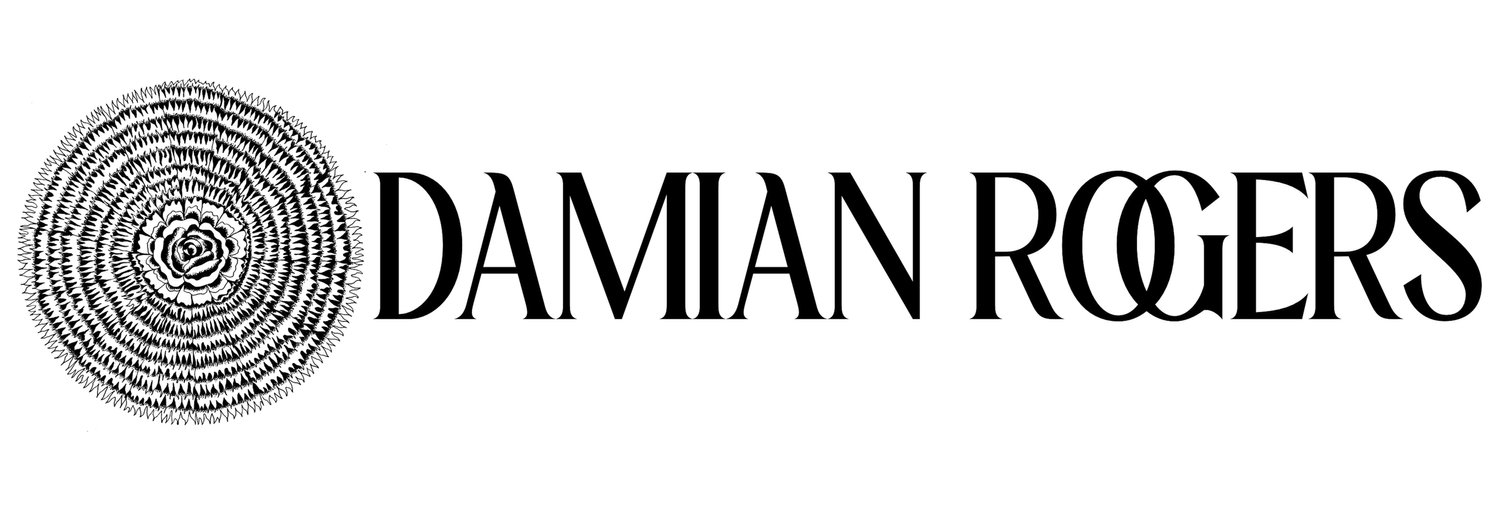AN ALPHABET FOR JOANNA named one of
the best books
of the year by
Quill & Quire
“Succinct, evocative, beautifully written, heartbreaking. . . . Of special interest to all those whose loved ones suffer from dementia.”
——Margaret Atwood, on Twitter
“In a memoir of stunning thoughtfulness, Rogers presents us with a loving treatise on what it means to be human.”
——Leanne Betasamosake Simpson
“Told in brilliant prose inter-animated by form and image, this is a poetic narrative and portrait of a mother’s life in fragments. Themes of mother-child, love and separation, memory and forgetting, the violence and fragility of the world next to creative endurance shaped by love—it’s a book that will break your heart and mend it.”
——Hoa Nguyen, Ignota Books of the Year
“Damian Rogers’s new book ingeniously complicates the age-old structure of the abecedarian, borrowing its title from a long-out-of-print children’s book whose addressee, Joanna, bears the same name as Rogers’s mother, now ten years into a diagnosis of frontal lobe dementia and all but robbed of language altogether. Like the memories of Rogers’s subject, however, these letters have been scrambled. An Alphabet for Joanna begins with the letter E, and not until page fifty-seven do we arrive at A, which stands for Art, and is followed by M for Magic. Part spell, part scrapbook, part elegy, part detective story, in its essence, this enthralling and heartbreaking memoir is a tribute to art’s unique power to conjure the ineffable—be it memory, identity, or history itself—and to fix it into forms that endure. Rogers is an accomplished poet, and it shows in her luminous and beautifully cadenced prose.”
——Suzanne Buffam, “Canadian Authors Pick Their Favourite Books of 2020,” The Walrus
Coach House Books, 2015
“This is one of my favourite books of poetry to come out in the past decade. The poems crackle with the ephemerality of the form, but also revel in the impossible anchors of existence—the rattling oblivion of drugs, the zen lucidity experienced in the company of children, or the mnemonic betrayals of old photographs. It’s this contraction of events and memories into diamond doses of profundity that makes Rogers one of the preeminent talents working today. These silhouettes of time are often characterized by an evasiveness that takes on a mystical quality. If Jorie Graham played a game of broken telephone reading passages from Thus Spake Zarathustra, the groundwork would be set for understanding the fertile ground Rogers is breaking with this hypnotizing work. Poetry can render abstractions of the mind intelligible in the exact degree that it obscures the soul which devised it: pedants call this lyrical martyrdom, but poets might grouse and call it an act of apostasy. Dear Leader is caught between these poles of reading, occupying a space of new frontiership whose poetical trajectories can only be guessed at and glimpsed.”
— Jean Marc Ah-Sen, All Lit Up (Dec 2020)
‘Multi-vectored, Rogers’s poems hum with life and tension, their speaker poised as mother, seer, reporter and daughter. They speak of loss and cold realities (misplaced charms of luck, a tour of an assisted-living facility, coins thrown into Niagara Falls). They also interweave dreams and visions: “O Lion, I am / an old handmaiden; I will not lay the pretty baby in the lap / of the imposter.” Simple but evocative, at once strange and plain, Rogers’s poems of address ricochet off the familiar "Dear Reader” or Dickinson’s “Dear Master” ... Rogers’s poems provide instructions for what to leave, what to take and what to fight. They act as selvage between the vast mother-ocean — the mem of memory — and the fabric we make of the uncertain in-between.’
— Hoa Nguyen, The Boston Review
‘How can we live with the kind of pain that worsens each day? Dear Leader explains through bold endurance, enumerated blessings and the artistic imagination. By pasting stark truths over, or under, images of strange, compelling beauty, Rogers creates a collage, a simulation of the human heart under assault, bleeding but unbroken. Part Orpheus, part pop-heroine who can “paint the daytime black,” all, an original act of aesthetic violence and pure, dauntless, love.’
— Lynn Crosbie



